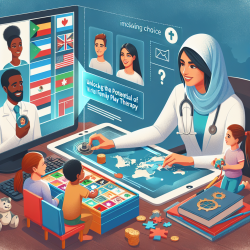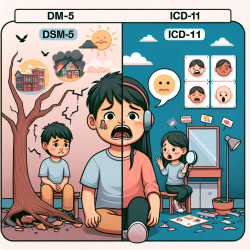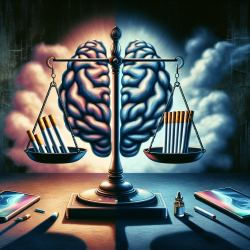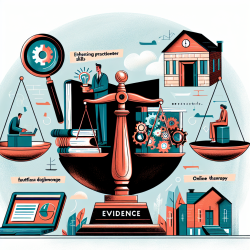In the field of psychotherapy, continual professional development is essential for creating the best outcomes for our clients. A recent research article titled "Some personal reflections relating to psychotherapy" by Dr. C. Shamasundar provides invaluable insights that can help practitioners refine their skills and deepen their understanding of therapeutic practice. Here are five key takeaways from the research that every practitioner should consider:
1. Integration of Professional and Personal Knowledge
Dr. Shamasundar emphasizes that therapists should integrate their professional knowledge with their personal life experiences. This integration helps bridge the gap between "intellectual knowledge" and "living knowledge," making the therapeutic process more authentic and relatable for clients. Practitioners should continuously strive to align their professional skills with their personal experiences to create a cohesive and effective therapeutic approach.
2. Universality of Psychological Knowledge
The research highlights that every individual possesses some level of psychological and sociological understanding, albeit in a less formalized manner. Therapists should recognize and respect the "living knowledge" that clients bring to the table. The role of the therapist is to refine, upgrade, and correct this knowledge using language and concepts that resonate with the client's own assumptive world.
3. Desirable Therapist Qualities
Dr. Shamasundar identifies several qualities that are essential for effective therapy. These include:
- Hopefulness
- Self-confidence
- Honesty
- Empathy
- Unconditional positive regard
- Non-judgmental acceptance
- Genuineness
These qualities are not only vital for therapeutic success but also align closely with the components of ideal human behavior and factors that correlate with mental well-being.
4. Mental Health as Effective Management of Miseries and Illnesses
The research underscores that mental health should be defined by how one manages life's inevitable challenges and miseries. Coping skills, which are behavioral expressions of ideal values and attitudes, play a crucial role in this management. Therapists should focus on enhancing these coping skills in their clients to foster resilience and long-term mental health.
5. The Importance of Coping Skills
Effective coping skills are the behavioral manifestations of culturally cherished values and attitudes. A deficiency in these skills can lead to severe stress and psychological morbidity. Therapists should guide clients to develop these skills, thereby helping them take responsibility for their own well-being and navigate life's challenges more effectively.
Conclusion
These insights from Dr. Shamasundar's research offer valuable guidance for practitioners looking to improve their therapeutic skills and outcomes. By integrating personal and professional knowledge, recognizing the universality of psychological understanding, embodying desirable therapist qualities, focusing on effective management of miseries, and enhancing coping skills, therapists can create more meaningful and impactful therapeutic experiences for their clients.To read the original research paper, please follow this link:
Some personal reflections relating to psychotherapy.










